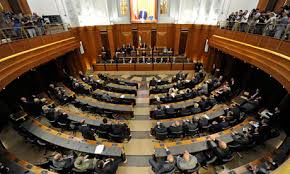
Joseph A. Kechichian, Senior Writer
Beirut: “The state has failed in handling the garbage management file which had turned into a Mexican soap opera and a national and health disaster burdening the Lebanese,” Phalange Party leader Sami Gemayel declared after yet another national dialogue session that brought under the same roof political elites that loathed each other, visible for one and all to see on a more or less regular basis.
The 15th dialogue session, which included the Marada Movement leader Sulaiman Franjieh — who stepped out early to visit former Prime Minister Saad Hariri — but not Progressive Socialist Party’s Walid Jumblatt nor the Free Patriotic Movement’s Michel Aoun — was devoted to the garbage crisis that lingered since July 17, 2015 when the Naameh landfill was closed. Many Lebanese wondered where else would leaders hold “national dialogues” to discuss garbage.
On Wednesday, the blame for the trash management disaster fell on the Council for Development and Reconstruction (CDR), a supra-national entity that is a government within one, with Gemayel hammering that the institution was no longer qualified to handle it. For his part, Agriculture Minister Akram Shehayyeb said that the CDR faced a dilemma and would clarify the latest scandal associated with its plan to export waste to Russia, after an official in that country claimed Moscow received “fake documents” from Lebanese authorities.
Gemayel insisted that the Phalange rejected the idea of exporting the trash because destinations were murky and costs astronomical, which confirmed that merchant-politicians insisted on keeping their hands in various cookie-jars. It was worth recalling that the cabinet approved an export plan with representatives of Britain’s Chinook and Holland’s Howa BV in December 2015, though neither Sierra Leone nor Russia, presumed importers, apparently approved. Meanwhile, garbage continued to pile up on most streets as well as in random locations, which raised health and environmental concerns.
Most notable, officials successfully thwarted unprecedented street protests against the political class, as “#YouStink” and “We Want Accountability”, two civil-society movements that mobilized public opinion and organised large demonstrations, were literally muzzled after several of its leaders were arrested
Notwithstanding the ongoing dialogue of the deaf on this and so many other public works projects, ranging the gamut from asphalting roads to building a bridge at Jal Al Dib that witnesses monstrous traffic jams at a key junction that leads from the capital northwards, challenged politicians confronted equally problematic quandaries with respect to the election of a successor to President Michel Suleiman.
Of course, several candidates were ready to fill the vacancy, even if parliamentarians could not be bothered to fulfill their constitutional duty. In fact, Hariri’s latest move was to break the logjam, even if his approach lost momentum. He welcomed Franjieh at his home on Wednesday, and approved his nominee’s bold declaration to reporters, as the latter reconfirmed that he intended to “remain a presidential candidate as long as some blocs support[ed]” him. “I will not withdraw from the presidential race and let down Hariri,” the contender affirmed.
Franjieh, who is a candidate along with the FPM’s Aoun—ostensibly a fellow March 8 alliance member—insisted that the two remained allies. “Our ties with the movement are not perfect, but we are still allies,” stressed Franjieh, adding: “Aoun may see our nomination as a competition, but we do not see it that way.” Interestingly, it was unclear what the two men were allied over though Franjieh admitted that he never moved without first coordinating with his associates, which raised several questions including whether the Aoun nomination by the Lebanese Forces and the Franjieh nomination by the Future Movement were not charades to postpone the presidential election sine die, or at least until the dust settled in Syria.
Interestingly, Hariri visited Speaker Nabih Berri on Wednesday evening where he preached democracy and declared that he was anxious to move the process forward not because he wished to return to the premiership, but because he wished to preserve what was left of Lebanese institutions. The two men may well have revisited the repercussions of the post November 2006 Hezbollah and Amal movement resignations from his government, though it was unclear whether either appreciated the irony associated with a full shut-down of parliament for nearly two years afterwards.
Of course, disputes between March 8 and 14 contenders necessitated compromises to fill the presidential vacancy, though Hezbollah reiterated after the 15th national dialogue that it would not allow an election to proceed unless it had guarantees that Aoun would win. Mohammad Raad, a Hezbollah deputy was crystal clear: “You have your interpretation and we have ours, and we will wait until such time when we can accomplish our goals,” he hammered.
The Lebanese are happy that Hariri returned to Beirut, though many are now seriously questioning his nomination of Franjieh who, ironically, considered himself to be the “twin” brother of Syrian President Bashar Al Assad. Many wondered whether the Damascene was the democratisation paragon worthy of emulation.
Discussions continued and, happily, the next round of national dialogue was scheduled for March 9, a week after the 36th parliamentary session is set to convene to elect a head of state. The situation on the ground is increasingly unbearable, between trash, corruption, unemployment, and gangster-like behavior everywhere—on Wednesday night another young man was knifed to death in Achrafie by two motorcycle-riding thugs—as elite-leaders displayed nonchalance.



